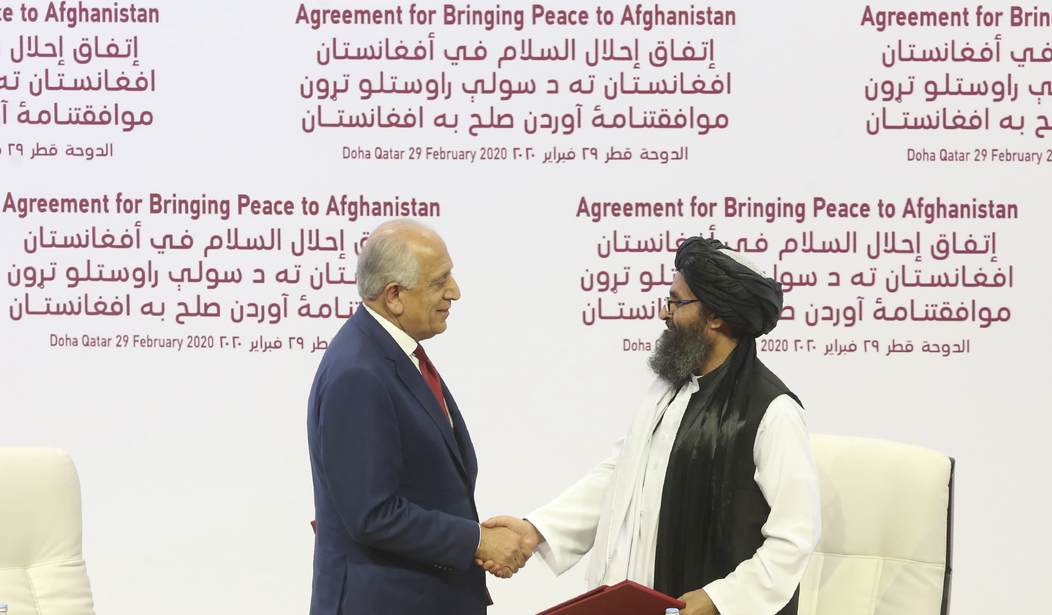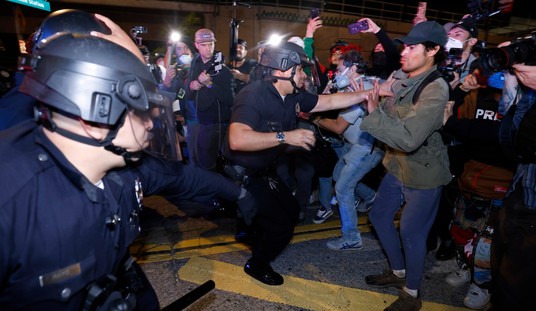The rapid pace at which the resurgent Taliban was able to retake Afghanistan amid the United States’ effort to withdraw its troops shocked the world – or at least those who have not paid close attention to how this situation materialized. But who is the man responsible for leading the upheaval that the world just witnessed?
For those following international affairs, the name Mullah Abdul Ghani Baradar will likely become an important one in the years to come. He is the head of the Taliban and will likely be Afghanistan’s new leader in the wake of the collapse of the U.S.-backed Afghan government.
Baradar has emerged as one of the Taliban’s most important leaders after presiding over the retaking of Afghanistan for the terrorist organization. He was born in Uruzgan province in 1968 and was a member of the Afghan mujahideen which fought against the Soviets in the 1980s. After the Russian forces retreated from the region, the soldier set up a madrassa, or Islamic religious school, in Kandahar, which is where the Taliban was created.
The young Baradar partnered with Mohammad Omar, his former commander, and brother-in-law. It was at this point that they created the burgeoning Taliban movement, which was characterized by strict adherence to Islamic law. The group’s objective was – and still is – the “religious purification of the country and the creation of an emirate,” according to the Guardian. An “emirate” is a territory that is ruled by a monarch called the “emir.”
The mullah was responsible for the day-to-day operations of the organization along with securing funding. He remained an important leader in the group. According to BBC News:
He held important responsibilities in nearly all the major wars across Afghanistan, and remained top commander of Taliban’s formation in the western region (Herat) as well as Kabul. At the time the Taliban were toppled he was their deputy minister of defence.
An Afghan official told BBC at the time that Baradar “controlled the money” and that “he was launching some of the deadliest attacks against our security forces.”
During an email exchange with Newsweek, the mullah reacted to the surge of U.S. troops in the region, declaring that he wished to cause maximum losses on the American military. He claimed the Taliban would continue its “jihad” until it brings about “the expulsion of our enemy from our land.”
In 1996, Baradar and Omar’s movement seized power after conquering a number of provincial capitals and key cities in the region. In fact, the Taliban’s retaking of Afghanistan mirrors its initial rise to power in the ‘90s. With the support of Pakistan’s Inter-Services Intelligence agency, they managed to eliminate threats from warlords and gain dominance over the nation.
After the United States invaded Afghanistan and shattered the Taliban in 2001, Baradar went into hiding. He remained a prominent leader in the organization and the insurgency that began shortly after. However, it seemed that at least on one occasion, he may have been willing to reach a peaceful outcome. The Times of Israel reported:
At the same time, Baradar was believed to have been among a small group of insurgents who approached interim Afghan leader Hamid Karzai with a letter outlining a potential deal that would have seen the militants recognize the new administration.
In a joint U.S.-Pakistani raid carried out in Feb 2010, Baradar was captured in Karachi. In 2013, BBC News reported:
Senior Afghan officials hope that a senior figure like him could persuade the Taliban to engage in talks with Kabul – a critical part of the government’s plan to ensure stability after Nato combat troops withdraw in 2014.
In 2018, Pakistan released Baradar under pressure from the Trump administration which believed he was important to the effort to reach a peace agreement. Upon his release, the Taliban leader traveled to Qatar where he later participated in the withdrawal agreement with the U.S.
From the Times of Israel:
In February 2020, Baradar was present during the signing of the Doha Agreement, under which the US would draw its forces down; in return, the Taliban promised not to let extremists use the country as a staging ground for attacking the US or its allies.
Now that the Afghanistan war is coming to a close, Mullah Abdul Ghani Baradar is set to take control of the nascent Islamic fundamentalist government. His profile has been raised even beyond what it was when the Taliban first took over the country. With China eyeing opportunities in the region, he could potentially become a major player on the world stage. Depending on how things go in the future, we might be hearing about him more frequently as the country settles back into being under Taliban rule.













